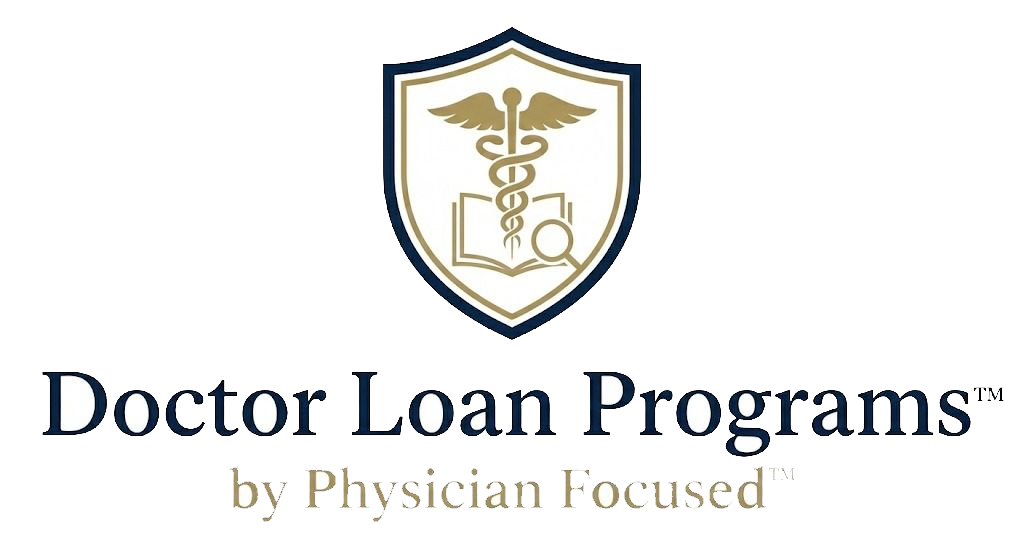You deserve to make informed financial decisions that support your career and lifestyle as a medical professional. Doctor loan programs specifically designed for physicians offer unique benefits that can alleviate some of the financial burdens associated with student loans and home buying. By understanding these specialized mortgage options, you can secure favorable terms and ultimately create a solid foundation for your financial future, making your transition into homeownership much smoother.
The Unique Financial Needs of Medical Professionals
Balancing a demanding medical career with your unique financial obligations can be challenging. As a medical professional, you often face high levels of student debt alongside the need to secure adequate housing, invest in retirement, and manage the costs associated with ongoing education and training. Your financial landscape is further complicated by the fact that it often takes years to reach your full earning potential, making it vital to establish a sound financial strategy tailored specifically to your situation.
Long-Term Education Costs
The path to becoming a physician is often long and expensive, with an average medical school debt exceeding $200,000. Coupled with your undergraduate education, these long-term educational costs can weigh heavily on your financial future. Planning for these expenses from the outset can help you make informed decisions and avoid getting overwhelmed by debt, allowing you to focus on your medical career with peace of mind.
Earning Potential and Student Debt
Your earning potential as a medical professional is substantial, but it often comes with a heavy burden of student debt that can take years to pay off. Physicians typically earn a median salary ranging from $200,000 to $300,000, depending on specialization and location. This high income does offer the potential to live comfortably and save for retirement, but it is vital to navigate the financial landscape wisely to leverage this earning ability without falling into debt traps.
While your salary can be impressive, managing student loan repayment effectively can significantly impact your long-term financial health. Loan forgiveness options and income-driven repayment plans are tailored for medical professionals, allowing you to start saving for your future while repaying your obligations. By focusing on strategies that maximize your income potential while minimizing the stress of debt, you can pave the way toward a more stable financial future. Understanding the balance between your high earning potential and your responsibilities will empower you to achieve your financial goals more efficiently.
Doctor Loan Programs: Tailored Financial Solutions
Doctor loan programs are specifically designed to meet the financial needs of medical professionals, allowing you to overcome common obstacles faced when applying for a mortgage. These tailored solutions consider the unique circumstances of your career, offering benefits like lower down payment options and reduced mortgage insurance requirements. With these specialized programs, you can navigate the complexities of home financing with greater ease and confidence.
Key Benefits of Doctor Loan Programs
One of the standout advantages of doctor loan programs is the flexibility they offer in terms of down payment. Many lenders allow you to secure a mortgage with as little as 0% to 10% down, negating the need for private mortgage insurance (PMI). Additionally, these programs often factor in your future earning potential rather than your current income, enabling you to secure better loan terms and a more favorable interest rate.
Comparison with Traditional Loan Options
Doctor loan programs often present more advantageous terms compared to traditional loan options. While standard mortgages typically require a 20% down payment and PMI, doctor loans cater specifically to your unique financial situation, allowing for lower upfront costs and minimizing ongoing expenses. This tailored approach empowers you to focus on your practice rather than being held back by financial constraints.
| Down Payment | 0% – 10% for doctor loans vs. 20% for traditional loans |
| PMI Requirement | No PMI for doctor loans vs. Required PMI for traditional loans with low down payments |
| Income Consideration | Future earning potential for doctor loans vs. Current income for traditional loans |
| Loan Limits | Higher loan limits for doctor loans vs. Standard limits for traditional loans |
Understanding the differences is key to making an informed decision. Doctor loans allow you to access higher loan amounts without prohibitive down payment requirements, a significant advantage in a housing market where prices have soared. Moreover, these loans can also mitigate some risks related to your unique income trajectory as a medical professional, enabling you to invest in your future without hindrances that traditional loans impose.
| Flexibility in Loan Types | Conventional, FHA, and VA options available for doctor loans |
| Interest Rates | Competitive rates often lower than traditional options |
| Procedure Simplicity | Faster processing times compared to traditional mortgages |
| Support Services | Access to financial advisors familiar with your industry |
Navigating the Application Process
Understanding the application process for doctor loan programs can simplify your journey toward homeownership. Start by researching lenders that specialize in these programs, as they often have different requirements compared to traditional loans. Familiarize yourself with key milestones such as pre-qualification, final approval, and closing, which will help you stay organized and on track throughout the process.
Required Documentation and Qualifications
You’ll need to gather specific documentation to strengthen your application. Common requirements include proof of income, your medical school diploma, residency verification, and your credit report. Lenders may also look for a debt-to-income ratio that meets their thresholds, ensuring you are financially prepared to manage mortgage payments alongside your current obligations.
Common Pitfalls and How to Avoid Them
Be aware of common pitfalls that can delay or derail your application. Many applicants underestimate the importance of their credit score or fail to provide adequate documentation, which can lead to unnecessary complications. Additionally, not comparing multiple lenders may result in missing out on more favorable terms.
For instance, many medical professionals overlook the lender’s requirements regarding student debt. Just because a doctor loan program may allow for a higher debt-to-income ratio doesn’t mean you should disregard your overall financial health. Regularly check your credit score and resolve any discrepancies before applying. Take time to review multiple offers thoroughly, looking beyond the interest rates to consider fees and additional benefits each lender may provide. Building a strong application can significantly enhance your chances of securing the best terms for your mortgage.
Long-Term Financial Strategy: Building Wealth with Doctor Loans
Utilizing doctor loans as part of a long-term financial strategy allows you to build wealth effectively over time. By leveraging these unique financing options, you can focus on investing in property rather than client debts. The lower down payment and favorable terms create opportunities to purchase homes in growing markets where property values may appreciate over the years, ultimately building equity that contributes to your financial success.
How to Leverage Loans for Home Investments
By strategically using doctor loans, you can invest in properties that generate rental income or appreciate over time. Purchasing a multi-family property, for example, provides you with a place to live while simultaneously earning rental income from tenants. This dual benefit enhances your cash flow and positions you for future financial stability as the property appreciates.
The Role of Financial Planning in Maximizing Benefits
Effective financial planning is key to reaping the full benefits of doctor loan programs. A comprehensive approach involves assessing your income, expenses, and investment goals to create a roadmap that aligns with your long-term vision. By integrating your loan strategy with broader financial initiatives, such as retirement savings or additional investments, you can enhance your overall financial health and make informed decisions to grow your wealth.
When you commit to a well-structured financial plan, you’re better equipped to navigate the housing market strategically. This might mean timing your property purchase to coincide with favorable market conditions or reinvesting profits from rental properties back into your financial portfolio. A financial advisor familiar with the medical profession can offer tailored advice, helping you optimize your debt-to-income ratio and refine your investment strategy, ultimately setting you up for enduring financial prosperity.

The Broader Impact on Medical Careers
The ability to secure favorable financing through doctor loan programs not only eases the burden of student debt but also enhances your overall career trajectory. When financial stress is minimized, you can focus more on your practice and professional development. As you establish yourself in your field, ownership of a home can lead to increased stability, enabling you to take on leadership roles and pursue specialty training without the overwhelming fear of financial instability.
How Home Ownership Influences Job Satisfaction
Homeownership can significantly elevate your sense of well-being, resulting in greater job satisfaction. Feeling settled in a community allows you to immerse yourself in your work and fosters a sense of belonging. Studies show that employees who are satisfied with their living arrangements report higher levels of motivation and lower rates of burnout, key factors for longevity in demanding medical professions.
Community Connections and Professional Growth
Establishing roots in a community through homeownership can enhance both personal and professional development. As you engage with local residents, grow friendships, and support community initiatives, you build a network that can extend to your professional life. Involvement in community organizations provides opportunities for collaboration, mentorship, and access to resources that can facilitate growth within your medical career.
Engaging with your community fosters a sense of reciprocity and support, which ultimately enriches your medical career. You may find that connections with local health initiatives or charities enhance your understanding of regional health challenges, inform your practice, and motivate you to contribute beyond your clinical duties. By extending your professional network through community engagement, you pave the way for future opportunities, partnerships, and innovations in your field, making your career path even more fulfilling.
To wrap up
With this in mind, enrolling in a doctor loan program can be a smart financial move for you as a medical professional. These specialized loans are tailored to meet your unique needs, often offering lower down payments and fewer restrictions compared to conventional mortgages. By taking advantage of these benefits, you can focus on your career without the added stress of financial burdens. Ultimately, investing in a doctor loan program not only supports your immediate housing needs but also contributes positively to your long-term financial stability.




